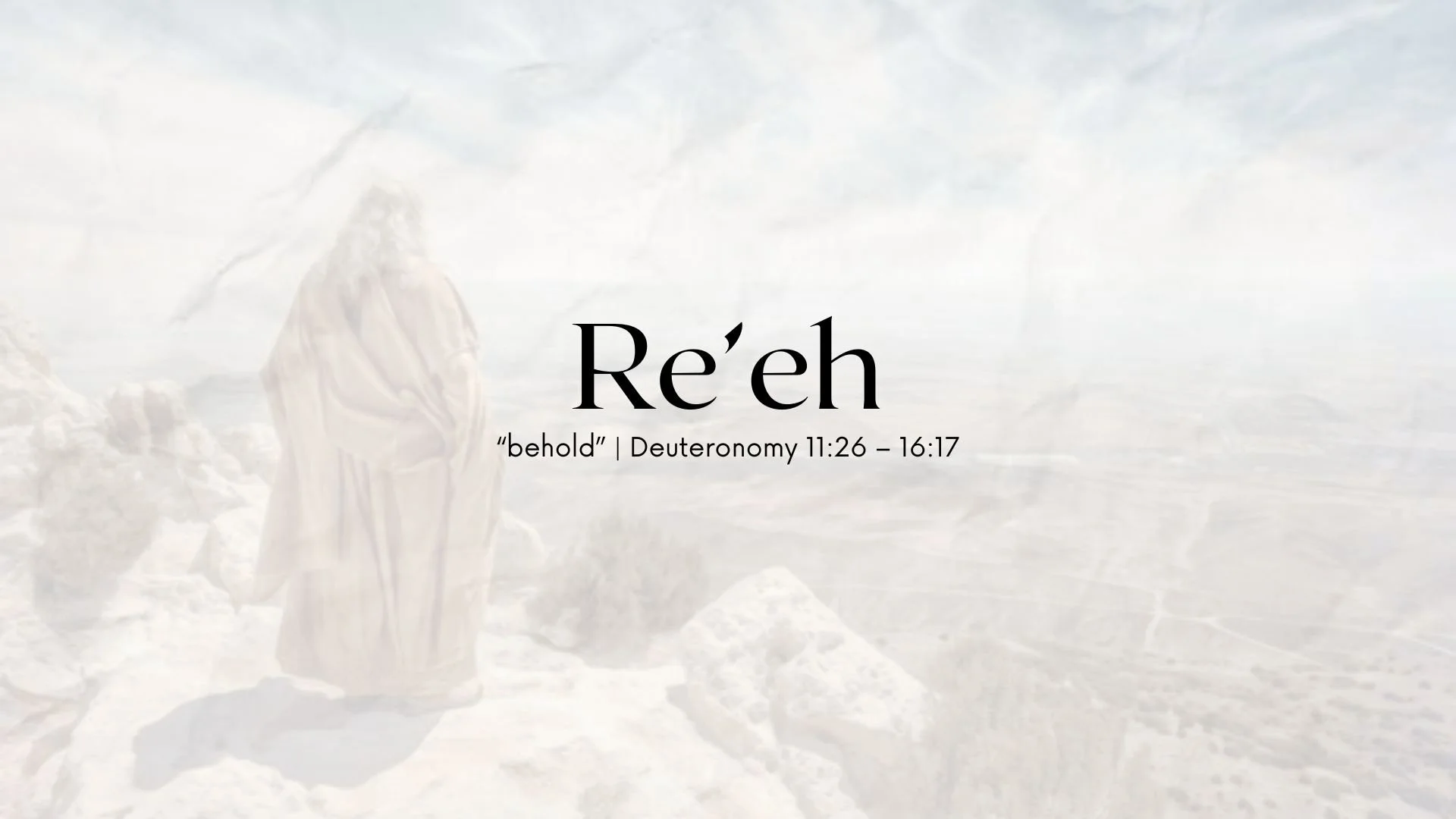Vezot ha’Bracha “and this is the blesing”
The Vezot ha’Bracha Torah Portion is named after the Hebrew word for “and this is the blessing”, the weekly reading is found in Deuteronomy starting in chapter 33 verse 1 and going through chapter 34 verse 12.
Ha’azinu “give ear”
The Ha’azinu Torah Portion is named after the Hebrew word for “give ear”, the weekly reading is found in Deuteronomy starting in chapter 32 verse 1 and going through verse 52.
Vayelech “and he went”
The Vayelech Torah Portion is named after the Hebrew word for “and he went”, the weekly reading is found in Deuteronomy starting in chapter 31 verse 1 and going through verse 30.
Nitzavim “you are standing”
The Nitzavim Torah Portion is named after the Hebrew word for “you are standing”, the weekly reading is found in Deuteronomy starting in chapter 29 verse 10 and going through chapter 30 and verse 20.
Ki Tavo “when you come”
Ki Tavo are the Hebrew word for “when you come” or “when you enter”, and is the name for the weekly Torah Portion reading for the Deuteronomy starting in chapter 26 verse 1 and going through chapter 29 and verse 9.
Ki Tetze “when you go”
Ki Tetze are the Hebrew word for “when you go” and is the name for the weekly Torah Portion reading for the Deuteronomy starting in chapter 21 verse 10 and going through chapter 25 and verse 19.
Shoftim “Judges”
Shoftim is the Hebrew word for “Judges”, this is the name for the weekly Torah Portion reading for the Deuteronomy starting in chapter 16 verse 18 and going through chapter 21 and verse 9.
Re’eh “behold”
Re’eh is the Hebrew word for “behold” and is the name of the book of Deuteronomy in Hebrew, this is the name for the weekly Torah Portion reading for the Deuteronomy starting in chapter 11 verse 26 and going through chapter 16 and verse 17.
Ekev “because”
Ekev is the Hebrew word for “because” and is the name of the book of Deuteronomy in Hebrew, this is the name for the weekly Torah Portion reading for the Deuteronomy starting in chapter 7 verse 12 and going through chapter 11 and verse 25.
Va’Etchanan “and I besought”
Va’Etchanan is the Hebrew word for “and I besought” and is the name of the book of Deuteronomy in Hebrew, this is the name for the weekly Torah Portion reading for the Deuteronomy starting in chapter 3 verse 23 and going through chapter 7 and verse 11.
Devarim “words”
Devarim is the Hebrew word for “words” and is the name of the book of Deuteronomy in Hebrew, this is the name for the weekly Torah Portion reading for the Deuteronomy starting in chapter 1 verse 1 and going through chapter 3 and verse 22.
Mattot-Massei “tribes” and “journeys”
Mattot-Massei is a double Torah portion. Mattot is the Hebrew word for “tribes”, and Massei is the Hebrew word for “journeys”, this is the name for the weekly Torah Portion reading for the Numbers starting in chapter 30 verse 1 and going through chapter 36 and verse 13.
Pinchas “Phinehas”
Pinchas is the Hebrew word for the name “Phinehas”, this is the name for the weekly Torah Portion reading for the Numbers starting in chapter 25 verse 10 and going through chapter 29 and verse 40.
Balak “Balak”
Balak is the Hebrew word for the name “Balak”, this is the name for the weekly Torah Portion reading for the Numbers starting in chapter 22 verse 2 and going through chapter 25 and verse 9.
Chukat “statute”
Chukat is the Hebrew word for “statute”, this is the name for the weekly Torah Portion reading for the Numbers starting in chapter 19 verse 1 and going through chapter 22 and verse 1.
Korach “Korah”
Korach is the Hebrew word for the name “Korah”, this is the name for the weekly Torah Portion reading for the Numbers starting in chapter 16 verse 1 and going through chapter 18 and verse 32.
Shelach “send thou”
Shelach is the Hebrew word for “send thou” or “send out”, this is the name for the weekly Torah Portion reading for the Numbers starting in chapter 13 verse 1 and going through chapter 15 and verse 41.
Beha’alotcha “when you set up”
Beha’alotcha is the Hebrew word for “when you set up” or “when you mount”, this is the name for the weekly Torah Portion reading for the Numbers starting in chapter 8 verse 1 and going through chapter 12 and verse 16.
Nasso “take”
Nasso is the Hebrew word for “take”, this is the name for the weekly Torah Portion reading for the Numbers starting in chapter 4 verse 21 and going through chapter 7 and verse 89.
Bamidbar “in the wilderness”
Bamidbar is the Hebrew word for “in the wilderness”, this is the name for the weekly Torah Portion reading for the Numbers starting in chapter 1 verse 1 and going through chapter 4 and verse 20.




















